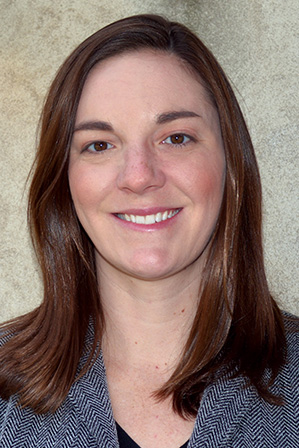Showing the New Congress that Economic Diplomacy Works
AFSA On the Hill
BY KIM GREENPLATE

AFSA’s economic diplomacy works (EDW) initiative includes a line of effort focused on convincing Congress that the U.S. Foreign Service is a vital part of the solution to competition from China and other countries on political, commercial and economic fronts.
Throughout the fall, AFSA’s EDW initiative generated bipartisan support in both congressional chambers and kept the work of the Foreign Service on the minds of Capitol Hill staff during election season. This was critical as Fiscal Year 2019 State/USAID funding reached a decision point—and congressional work on FY20 appropriations is not far away.
As part of this initiative, AFSA hosted an event for Senate staff on Oct. 12 in conjunction with the Senate Foreign Service Caucus. We brought in retired Foreign Service officers to present their experiences of successful economic diplomacy, and AFSA was able to reach 25 percent of Senate offices with our EDW message in one go!
AFSA was delighted to share with those Senate offices a letter signed by 96 business associations that rallied behind the EDW effort, asking Secretary of State Mike Pompeo to send more FSOs abroad and linking the Foreign Service to their own prosperity. The letter bolstered our advocacy efforts on the Hill by demonstrating support from the business community, which regularly influences Congress.
AFSA continued its EDW efforts despite the uncertainty that plagued the congressional schedule leading into the 116th Congress. On the Hill, legislators faced a longer-than-usual fall session, midterm elections, congressional leadership elections and, finally, the expiration of a continuing resolution that included State/USAID funding. We also spent the weeks after the midterm elections analyzing the implications of the newly elected member class for our future efforts.
With a new congressional landscape forming in 2019, AFSA will pivot its advocacy strategy to match the environment and focus on creating new supporters. AFSA currently has champions on the Hill who are supportive of the Foreign Service regardless of their committee assignments, and we seek to replicate this support with the new class in the 116th Congress.
In 2018 AFSA was able to demonstrate for current members of Congress that a field-forward Foreign Service posture is a highly cost-effective way to counter competition and retain American global leadership; we must now replicate this effort with about 100 new members.
As Democrats take the majority in the House of Representatives and Republicans keep their majority in the Senate, political gridlock in a split Congress is inevitable—and likely not much will become law in the next two years.
This is especially important to consider when looking at the timeline for FY20 appropriations bills. Remember that Congress was the authoritative voice in rejecting the administration-proposed cuts to the State/USAID budget.
As 2019 begins, AFSA is calling on new members of Congress to support the U.S. Foreign Service and help make economic diplomacy work for the American people by putting an increased number of Foreign Service positions in the field. This show of support can help create a firewall that protects the Foreign Service once again, as Congress rejects any deep funding and personnel cuts proposed by the administration going into the FY20 appropriations cycle.

